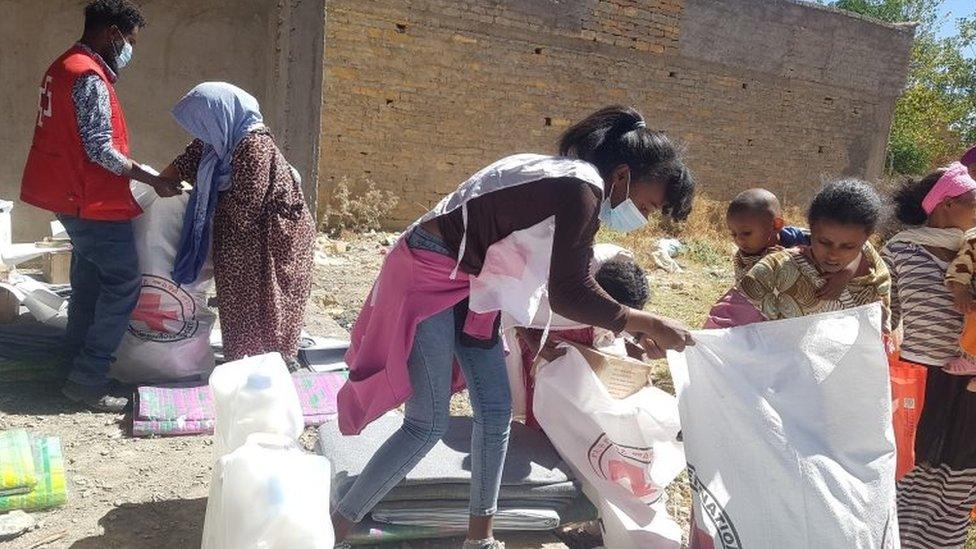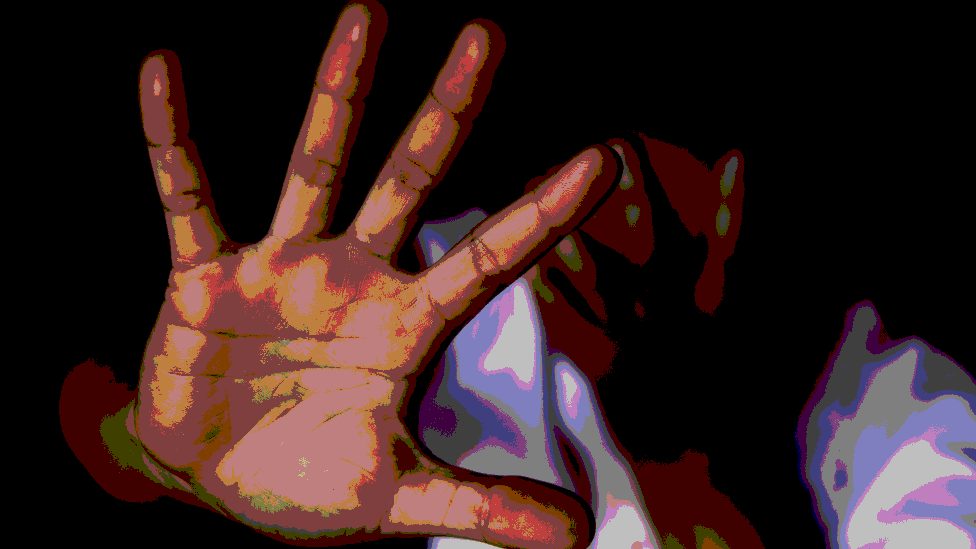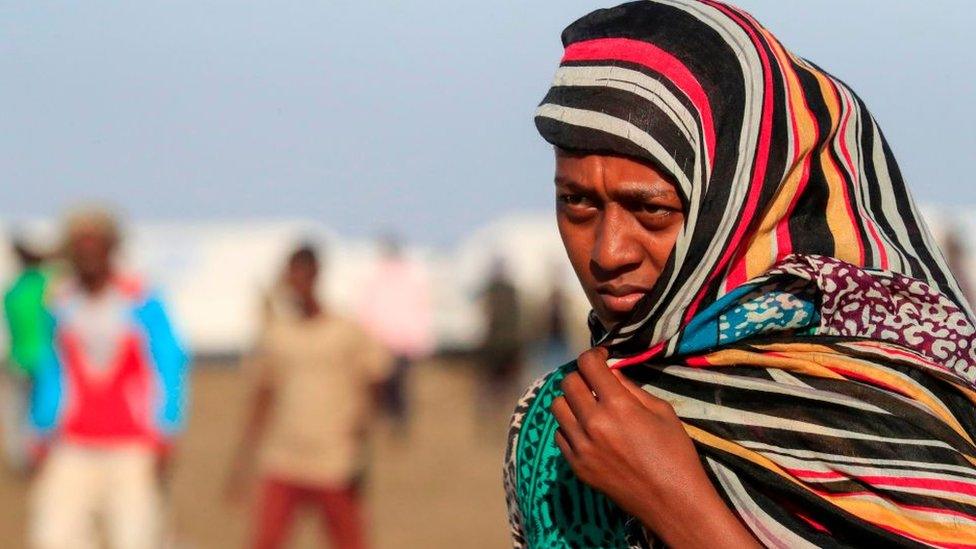Tigray crisis: 'Overwhelming' humanitarian needs in Ethiopia's region
- Published

The Red Cross also said the humanitarian response to the situation needed to be urgently scaled up
The needs of people affected by deadly fighting in Ethiopia's Tigray region are "overwhelming", the International Committee of the Red Cross has warned.
"The people in Tigray... lost the harvest season," the ICRC's director of operations, Dominik Stillhart, told the BBC during his visit to Ethiopia.
He said there were "serious issues with regards to access to medical care".
Ethiopia's government had earlier said was being delivered and nearly 1.5 million people had been reached.
Thousands of people are reported to have been killed, and about two million have been internally displaced.
About 100,000 Eritrean refugees who had been living in UN-run camps in Tigray have also been caught up in the conflict.
Conflict broke out in November after the Tigray People's Liberation Front (TPLF) seized federal military bases in the region following a breakdown in relations with Prime Minister Abiy Ahmed's government in Addis Ababa.
The central government - which has since claimed victory - has heavily restricted access to the region for the media and aid agencies.
What is the background to the conflict?
The TPLF had been the ruling party in Tigray, with an estimated 250,000 fighters under its command, for almost 30 years.
It was ousted from power on 28 November after Ethiopian government troops captured the regional capital, Mekelle.
Mr Abiy accused the TPLF of threatening the territorial integrity of Ethiopia, and of trying to overthrow his government by seizing military bases earlier that month.


The TPLF said it had captured the bases as a pre-emptive strike as it feared federal intervention in Tigray.
In August, it organised elections in Tigray in defiance of a decision taken at federal level to postpone all polls because of the coronavirus outbreak.
Mr Abiy's government condemned the election as illegal, while the TPLF said his government was "illegitimate" and did not have a mandate to govern Ethiopia.
Tensions boiled over, leading to the outbreak of conflict.
- Published15 February 2021

- Published2 February 2021
